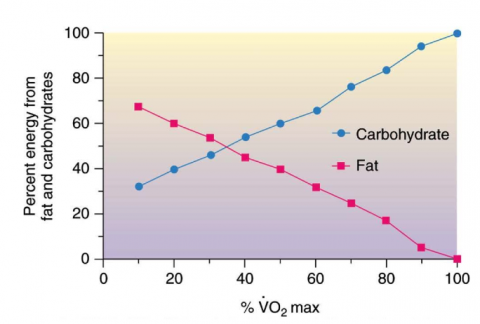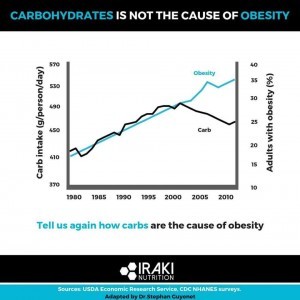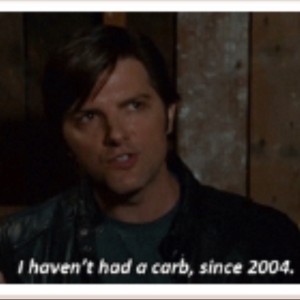Nutrition is one area of fitness and performance that many struggle with. Take for example the recent documentary Game Changers as an example. Since this film has begun to trend we're hearing of more and more people making the switch to becoming vegan or vegetarian. What this tells me is that the average person: A. Can be easily swayed by a Hollywood story i.e. James Cameron, Arnold Schwarzenegger and Jackie Chan produced and/or directed this documentary. B. Is seeking more or better results and is willing to make changes to achieve better results. Knowing that many don't have a background in nutritional science and want to achieve the best results was the inspiration for this piece. Oftentimes those seeking the best results may invest in a supplement and so we want to provide some direction on that end as well. As we evaluate the various aspects of nutrition we want to identify if there would be benefit to adding a supplement to the mix. We need to be on the same page as to what is a supplement and here is our criteria. Something that is in addition to and not in place of.Something that is morally and legally justified.Something that has 3rd party labeling to assure the quality. If a substance doesn't adhere to these three rules we, the coaches at Okanagan Peak Performance Inc., would not recommend it to our clients. Obviously it is possible to source many products that don't satisfy these three rules, and find coaches that may recommend them, but these are our rules. Now onto the nutritional guidelines. Step 1 - Energy Balance The first step is to determine is you are eating enough calories to support your goal. The last part of the sentence is key. If we want to change our mass we...
Are Carbs the Cause of Obesity?
- Chris Collins
- Fitness
- 1679 Hits
- 0 Comments
-
Alright it's time for a pop quiz. And today the question is 'What's the best way nutritionally to achieve a weight loss goal?'Now depending who you talk to the answer will vary. Answers may include: keto low fat intermittent fasting cleanse or detox whole foods raw foods vegetarian vegan IIFYM (aka if it fits your macros) flexible dietingAnd there's more than this to add to the list.Get's kind of confusing doesn't it? Paralysis by analysis comes to mind.Recently a colleague shared a graph on his social media. And it caught my attention and became the foundation for this post.Here's the graph:[caption id="attachment_5560" align="aligncenter" width="300"] Carbohydrate intake and percentage of adults with obesity over time.Here's what the graph shows:One the left vertical axis is carb intake in grams/person/day. The range is from the low 400s to the mid 500s per day.On the right vertical axis is the percentage of adults with obesity.On the horizontal axis is time in years from around 1980 to 2010.Two lines are plotted on the graph. In black we can see the consumption of carbs. And a black line represents the percentage of individuals with obesity.A few observations from this graph include: Carb intake increased steadily from 1980 to 2000. From 2000 to 2010 carb intake has been on the decline. Obesity rates have increased steadily from 1980-2010 The graph is based on a certain population i.e. obese individuals. We don't know anything about the quality of the carbohydrates consumed.This now creates an interesting conversation.First of all, we understand carb intake was reduced. Was caloric intake reduced as well? Or were carb calories replaced with additional protein or fat?I haven't dug into the reference for this graph so can't comment on what else changed with the population. Has nutritional quality decreased? Have activity levels dropped off? Have sleep...
What to Eat Before Training
- Chris Collins
- Fitness
- 1709 Hits
- 0 Comments
-
It's fairly common to enter a gym setting and not know where to begin. This is obvious based on the number of gym newbies that venture straight to the treadmills. [caption id="attachment_4838" align="aligncenter" width="300"] Treadmill: It's pretty hard to do it wrong. A treadmill is pretty straight-forward. There's usually a large button marked 'Start' and if you were able to successfully navigate the parking lot, lobby and cardio area, it's safe to assume you are proficient in walking. Hence the popularity of the treadmill. It's easy to start. You are able to watch your favourite show. It doesn't have to be very difficult. There are numbers to track the work you did. And most importantly, no one will judge you for your technique on using a treadmill. I mean, c'mon, you're walking on a treadmill. But further still, nobody else at the gym really cares what you're doing or how you're doing it. But that's a story for another time. Instead of talking to you about how people don't know how to get started once they get inside the gym there is another common issue people struggle with at the gym. And that's what to eat before training. Many people struggle with how they should fuel their body for training. And others know they should eat something yet feel nauseous part way through their workout. If this sounds like you below are some tips to ensure you are optimally fuelled and not tasting your breakfast a second time. Tip #1 - Ease Into ItAt this time of year many are getting starting on a training program for the first time or resuming one after a layoff. And with positive intentions they try to jump straight back in to where they left off. Or it could be a training partner that is leading...
Eat Your Carbs...Except These
- Chris Collins
- Nutrition Advice
- 1504 Hits
- 0 Comments
-
When it comes to nutrition, carbohydrates are an interesting topic. You either find people fall into one of three categories when it comes to this macro-nutrient. Some will avoid carbohydrates like the plague for a variety of reasons. This could be due to an attempt to eliminate gluten from the diet, a belief that carbohydrates make us fat or for other health reasons. Others will consume carbohydrates in small quantities while only selecting the varieties believed to the healthiest. Sometimes this include carbohydrates that are gluten-free, low glycemic, organic, whole grain or simply fruits and vegetables. Lastly there are some people who don't get too excited about carbs. They will eat bread, pasta, cereal and rice without taking a special pill or scheduling an additional training session to burn off all this additional energy. Gets kind of confusing, doesn't it? What information do you follow? Do you go with what the healthiest, leanest person you know says? Do you go with whatever the newest information, i.e. a trend, is suggesting? Or something else? While this post isn't about deciphering nutritional sources to determine who or what to trust the short answer is to trust those who are the most educated in a field and where the majority of evidence points. For example, if I could follow a nutritional recommendation from a nutritionist from someone with a PhD in this field, from a scientist in another field of study or from a well-known fitness person, I'll trust the person with the PhD in nutrition. As well, if the majority of evidence, i.e. peer reviewed research, on a topic indicates a particular finding I'll usually go with that. Consideration must be given to the type of study, duration, number of subjects etc but assuming the methods are solid I'll go with what most research tells us....
More on Chocolate Milk Post Workout
The other day I finished up a session with a client and we were talking about post-workout nutrition. And as we have chocolate milk for after your workout I offered one to this client. And she had a question regarding drinking chocolate milk. Specifically she wanted to know if it was ok to drink the reduced sugar version. Here's what I told her. After training the body is looking to begin the repair process and replenish metabolites that have been depleted. During training the body uses ATP as the energy source. Carbohydrates are a prime source for generating ATP during training. Some of the cards we eat are stored in the body in the form of glycogen in the muscle and liver. Anyways, it makes sense that after training we've depleted the body's source of glycogen and this needs to be replaced. If we eat only protein we won't have the necessary nutrients to replenish our store of glycogen. This is a common mistake some make with regards to their post-workout nutrition. They believe they need protein, which they do, but nothing else. There is also the belief that more is better and if 20 grams of protein in your post workout shake is good than 40 grams would be better and 50 or 60 grams would probably be best. But here's the thing. 20 grams of whey protein will get the job done. As will 6 grams of branched chain amino acids. Or 2 grams of the essential amino acid leucine. But we tend to follow label instructions on our favourite protein supplement which tells us a serving is 30-50 grams of protein. And the other protein is the lack of carbohydrate. And optimal post-workout formulation would have 3 or 4 times the amount of carbs as protein. A regular...



